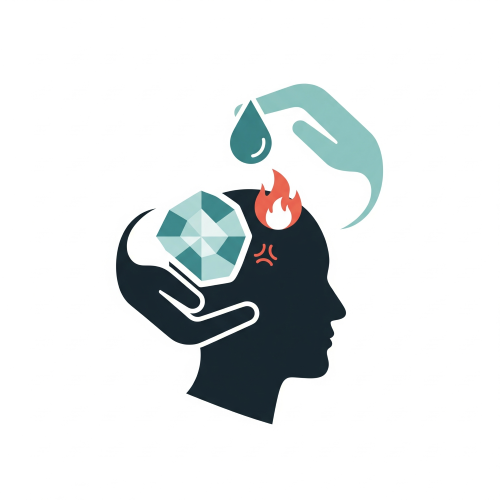SELF CONTROL
Definition of Self-Control:
Self-control is the ability of a person to manage their actions, emotions, and desires, especially in difficult situations. It helps a person to do the right thing at the right time, even when they are tempted to behave wrongly. Self-control means being disciplined and thinking before acting.
Importance of Self-Control
- Helps to Avoid Trouble: When you control your anger or emotions, you avoid fights, arguments, and actions that can lead to punishment.
- Promotes Discipline: Self-control makes you behave in a responsible and respectful way, both in school and at home.
- Improves Focus: A person with self-control can concentrate better on their work or studies without being easily distracted.
- Builds Good Character: It shows maturity and earns you respect from others. People trust and admire those who can control themselves.
- Prevents Bad Habits: With self-control, you are less likely to get involved in smoking, stealing, lying, or other wrong behaviours.
- Encourages Peaceful Living: Self-controlled people live peacefully with others and help to create a calm and friendly environment.
Ways to Develop Self-Control
- Think Before You Act: Always pause and consider the results of your actions before doing anything.
- Avoid Bad Company: Stay away from friends who may push you into bad habits or risky behaviour.
- Obey Rules and Instructions: Follow the rules set by your parents, teachers, and elders. This helps you stay on the right path.
- Practice Patience: Learn to wait calmly and control your desires, especially when you don’t get what you want immediately.
- Set Personal Goals: Work toward your goals with focus and discipline. Avoid anything that may distract or delay your progress.
- Control Your Emotions: Learn to manage anger, jealousy, fear, or sadness. You can talk to someone or take deep breaths when you're upset.
Consequences of Lack of Self-Control
- Punishment or Disgrace: People who cannot control themselves often face punishment in school, at home, or in society.
- Loss of Respect: They may lose the trust and respect of parents, teachers, and friends.
- Poor Academic Performance: Lack of self-control leads to distractions, laziness, and poor concentration in class.
- Involvement in Crime: Without self-control, one may be easily led into stealing, cultism, violence, or other criminal activities.

